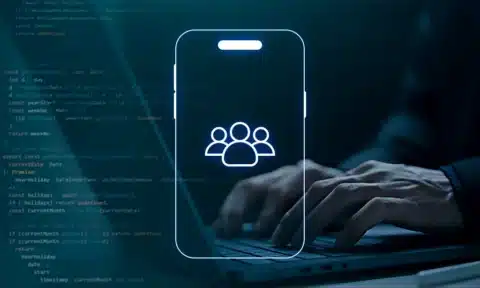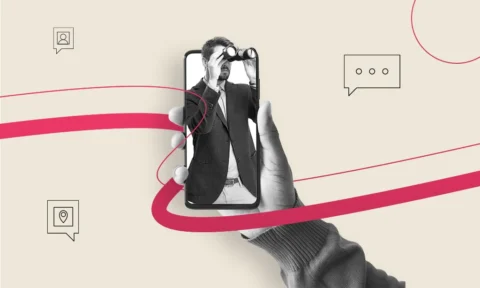When you need an app, what matters?
Well, what doesn’t? Everything is important when you’re developing an interface, from the button color you choose to the platforms it opens on first.
The worst thing you can do is treat your app as a side project. That digital baby needs its team, meetings, and loving care. It also needs a developer – someone who can parent everything from the code to the design.
But what if you don’t know a developer and need to find one? Aren’t there thousands out there? Yes, but hiring app developers can be easy.
Just use our user-friendly tips below.
Hiring App Developers: Start Internal
We don’t mean start hiring internally; we mean start by figuring out what you and your team want. What is the reason you’re developing an app? What’s its purpose?
How will your app make the customer’s life easier or deliver something faster? Think of your app as a mini-business extension. You need to ask yourself the same type of questions as you did when you started your current business.
Create a list of goals that your app will accomplish. Set a timeline for when you’d like it out, and have some examples of app formats you like.
Then you’ll be ready to meet with the developer when you find one, using these suggestions.
Hiring Tips
We recommend using a service or a company that specializes in app and software development. Finding a freelancer on the internet may seem cheaper, but you never know the quality you’re going to get.
You could invest all your time and money in a freelancer who never contacts you again. Working with an agency takes away that risk.
That said, agencies have different developers whom you can choose between. Here’s how to pick the right one:
Ask for Credentials
Hiring an app developer is like any other interview. You need to see their resume, their references, and their portfolio. We’ll touch on their portfolio later.
Remember, more schooling doesn’t necessarily mean they’re better. There are plenty of people who didn’t go the traditional education route that still make awesome apps.
Look at their experience. Do they hop from job to job? Usually, that is a red flag, but for developers, that could be a good thing.
Having constant need or employment means people are happy with their work. If they’re with an agency, how long have they been with them?
Feel free to ask the agency to recommend a developer for your niche instead of just giving you who’s available.
Check the Credentials
Okay, now that you know they work for some legitimate people, it’s time to make sure those people stand behind the developer’s work. First of all, check out the legitimacy and general reviews of any agency they’re with.
Do the agency’s overall customers seem to be happy? Are they registered with local business bureaus or the equivalent?
What’s the agency support policy if you’re having issues?
One easy way to test the quality of agency support is to contact them. How quickly do they get back to you? If you contact them on a Monday but don’t hear back until Thursday, that may not be the right agency for you.
Portfolio Questions
When you look at a developer’s portfolio, it’s going to be different from looking at photos or copy examples. They created (or helped create) entities you can interact with.
Have them show you their version of a portfolio, which will likely include images and screenshots. But to get a good feel, go a step further.
Download one or all of the apps they’ve created. What’s the experience like? Do you like the format?
Are the formats of the different apps for different clients different, or does the developer seem to have a certain style? That’s not a bad thing – as long as the style is something you like.
Look at the ratings of the app in the app store. How many complaints versus praise comments are there? Are there updates relatively often or recently?
It’s normal to see notes from developers like “bug fixed 1/18” in the app store. This is a good thing; it means the developer didn’t just make the app and peace out. They still interact and work with it to this day.
That’s the kind of support you want from a developer.
What’s Their Preferred Device?
If someone has an Android but develops iOS apps, why? It’s not a red flag to not develop the system you have, but it’s worth asking their thoughts.
Why do they think creating something for iOS is easier and vice versa? Do they have a preference, or can they develop for both? If you want an app in both iTunes and the Play store, you need to consider someone who can develop for both.
Other up-and-coming app platforms include smart TVs, voice assistants, and the Amazon app store.
Can they come up with versions for those platforms too? It’s reasonable for them to charge extra if so.
How Will You Communicate?
Many people work remotely, even if they’re working with an agency. Will they talk to you via phone, Skype, or email? What’s their plan for the initial meeting?
How often will they check back with you through development? You can and should ask the developers this, but it’s worth asking their references about how their communication was.
You want someone who’s there for you and your project -, not someone who’s spread too thin.
Your App
Finally, what matters when hiring app developers is that you like them and your work. Most apps take over 100 hours (if not 200) of time, and that’s a lot of check-ins.
If you don’t like your developer as a colleague, why work with them? Finding someone you get along with will make the process that much easier.We’d like to think our developers have it all – including pleasant personalities. Want to get started developing your app? Click here for more information.



